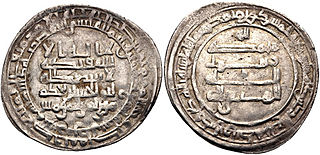 W
WGhilman were slave-soldiers and/or mercenaries in the armies throughout the Islamic world, such as the Abbasid, Samanid, Safavid, Afsharid and Qajar empires. Islamic states from the early 9th century to the early 19th century consistently deployed slaves as soldiers, a phenomenon that was very rare outside of the Islamic world.
 W
WAlp-Tegin, was a Turkic slave commander of the Samanid Empire, who would later become the semi-independent governor of Ghazna from 962 until his death in 963.
 W
WAbū'l-Najm Badr ibn ʿAbdallāh al-Jamālī al-Mustanṣirī, better known as Badr al-Jamali was a vizier and prominent statesman for the Fatimid Caliphate under Caliph al-Mustansir. His appointment to the vizierate in 1073 restored the fortunes of the Fatimid state, which had faced collapse in the previous decades, but also began a period where the vizierate was dominated by military strongmen who held power through their military strength, rather than through the Caliph's appointment. An Armenian, Badr al-Jamali initiated a wave of Armenian migration into Egypt, and was the first of a series of viziers of Armenian origin, who played a major role in the fortunes of the Fatimid Caliphate over the subsequent century.
 W
WAbū al-Husayn Bajkam al-Mākānī, referred to as Bajkam, Badjkam or Bachkam, was a Turkish military commander and official of the Abbasid Caliphate. A former ghulam of the Ziyarid dynasty, Bajkam entered Abbasid service following the assassination of the Ziyarid ruler Mardavij in 935. During his five-year tenure at the Caliphate's court at Baghdad, he was granted the title of amir al-umara, consolidating his dominance over the caliphs al-Radi and al-Muttaqi and giving him absolute power over their domains. Bajkam was challenged throughout his rule by various opponents, including his predecessor as amir al-umara, Muhammad ibn Ra'iq, the Basra-based Baridis, and the Buyid dynasty of Iran, but he succeeded in retaining control until his death. He was murdered by a party of Kurds during a hunting excursion in 941, shortly after the accession of al-Muttaqi as Caliph. Bajkam was known both for his firm rule and for his patronage of Baghdad intellectuals, who respected and in some cases befriended him. His death led to a void in central power, resulting in a brief period of instability and fighting in Baghdad.
 W
WDaud-Khan or Dāvūd b. Allāhverdī was a Safavid Iranian military commander and politician of Georgian origin who served as governor (beglarbeg) of Ganja and Karabakh from 1627 to 1633.
 W
WThe Ghaznavid dynasty was a Persianate Muslim dynasty of Turkic mamluk origin, ruling, at its greatest extent, large parts of Iran, Afghanistan, much of Transoxiana and the northwest Indian subcontinent from 977 to 1186. The dynasty was founded by Sabuktigin upon his succession to the rule of Ghazna after the death of his father-in-law, Alp Tigin, who was an ex-general of the Samanid Empire from Balkh, north of the Hindu Kush in Greater Khorasan.
 W
WImam-Quli Khan was an Iranian military and political leader of Georgian origin who served as a governor of Fars, Lar and Bahrain for the shahs Abbas I and Safi.
 W
WAbu al-Fatḥ Manuchihr Khan, was a Safavid official and gholam of Armenian origin. Like his father Qarachaqay Khan, Manuchihr was established at Mashhad as the general and governor of Khorasan under the shahs (kings) Abbas I and Ṣāfi. His brother Ali Quli Khan became prefect of Qom and head of the library of Abbas I. Manuchihr Khan's son, Qarachaqay Khan II, became also a governor of Mashhad. All of them were among the Safavid cultural and intellectual elite, known as “men of knowledge and integrity’ and “of illustrious acts and deeds”.
 W
WQarachaqay Khan was a military commander in Safavid Iran of Armenian origin. He was known for his great collection of porcelain items and loyal service to Shah Abbas I. Qarachaqay Khan was killed while commanding an expedition against the Georgian rebels.
 W
WAbu Mansur Nasir al-Din Sabuktigin, also spelled as Sabuktagin, Sabuktakin, Sebüktegin and Sebük Tigin, was the founder of the Ghaznavid dynasty, ruling from 367 A.H/977 A.D to 387 A.H/997 A.D. In Turkic the name means beloved prince.